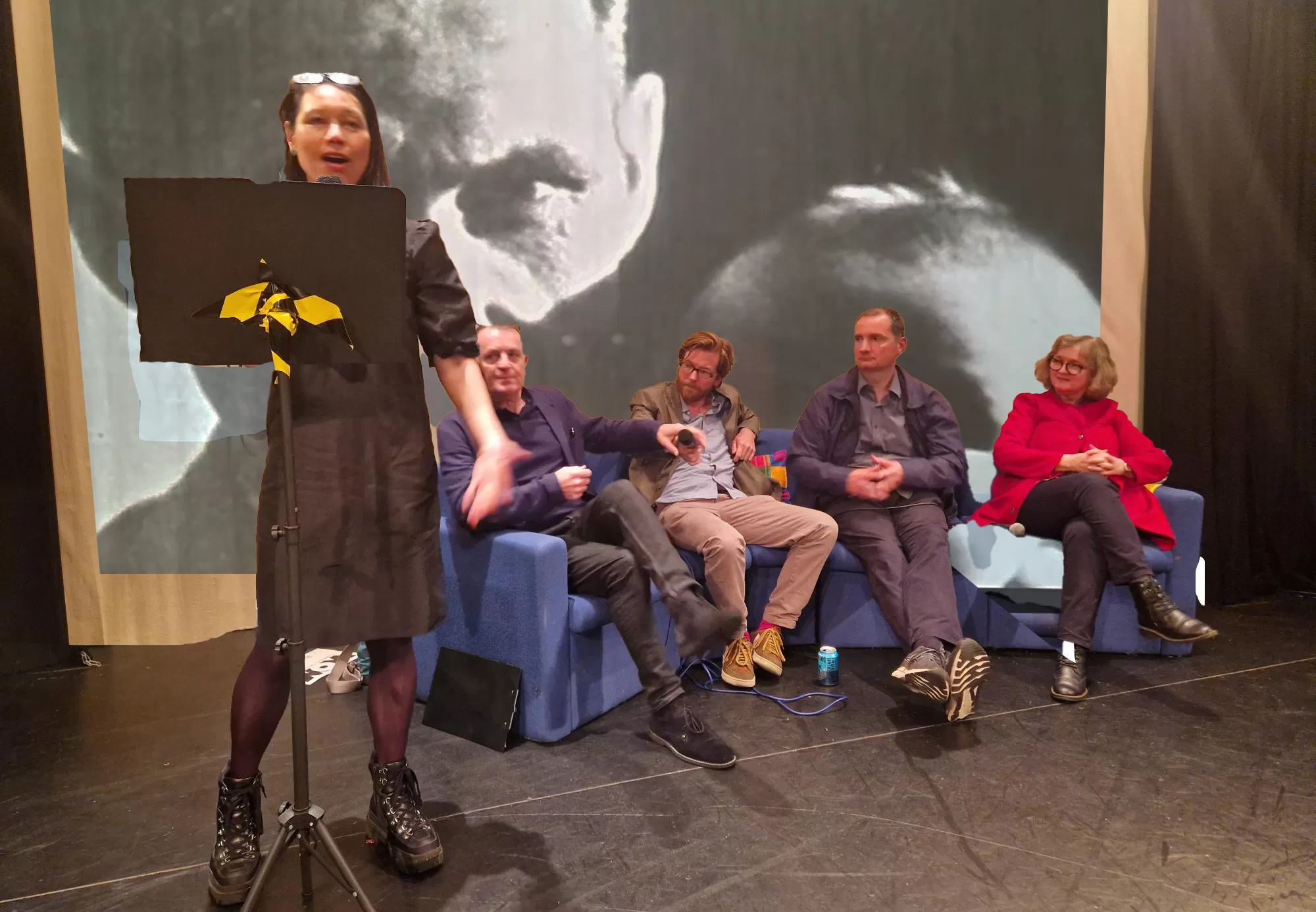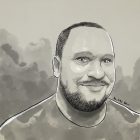“We are all born free. We all have our own thoughts and ideas, and we should all be treated the same way.”
These words form the first article of the United Nations Universal Declaration of Human Rights. Adopted on 10 December 1948, the document was created to outline and protect every human’s basic right after the bloodshed of the Second World War.
At the same time, George Orwell was completing his classic dystopian novel, Nineteen Eighty-Four; published the following year. While fictional, it painted a radically different vision: “If you want a picture of the future, imagine a boot stamping on a human face – forever.”
Following a screening of the final programme of BBC Arena’s series about the life of Orwell, aired in 1984, a panel at WoWFEST: FAHRENHEIT 2024 festival in Liverpool discussed the question: Just how close are we to Orwell’s vision – or are we already there?
Daniel Gorman is director of English PEN, one of the first international bodies that advocated for human rights, of which Orwell was a member. He believes the novel is still key when looking at the challenges facing freedom of expression today: “The book is always relevant but feels particularly feels so with the current creep of authoritarianism. It is a warning.
“It says something about human nature more broadly, about state and power, and as more power is centralised in fewer hands, we could go along with it until we realise it’s too late.”
Against the backdrop of a collapsed Nazi Germany regime and a Soviet Iron Curtain falling across Europe, it was clear who the ideological proponents were around the time of Orwell’s writing. Freedom of expression and human rights campaigner and researcher Sara Whyatt stated now, however, the lines are more blurred.
“We still have the usual suspects like Russia, and Belarus is there, plus situations like now in Georgia with the proposed introduction of the ‘foreign agent’ law in the country.
“It becomes very difficult now though now as it’s an amorphous group of people at play. This is where social media also plays a problematic role”, she added.
Historically seen solely through the lens of states and countries, the destabilising effect of social media on the fight against censorship was a key discussion point in the debate.
“I used to know who to send letters to, and which buildings to protest outside of. Now, I don’t know who the enemy is anymore, and I feel the enemy is all around me through social media. Does that feel real?”, Whyatt continued.
Nineteen Eighty-Four is also about the manipulation of communications, seen now through the difficulty to parse through a barrage of information on social media, with bot farms trying to widely sow confusion with misinformation and disinformation, argued Gorman.
He admitted that social media does sometimes have its positives and gets information out when official sources are limited: “The vast majority of information we’re getting from Gaza is from local journalists through social media, as international journalists haven’t been allowed in, and remember its role in the 2011 Arab Spring also. The problem is always there for information to be abused.”
Dolan Cummings is director of the Manifesto Club, an organisation that challenges what it calls the “hyper-regulation” of public spaces. Like the online space, he believes there’s a problem with freedom of speech and expression in the physical world, citing encroaching laws in the UK.
“I think the view in the UK now is that freedom of association and speech are problems to be managed rather than potential solutions to problems. Not just around political protest but also even bans on things like busking and leafleting are criminalised by public spaces protection orders”, he said.
Naturally a debate concerning a novel also covered the role of censorship against creative expression. Gorman relayed what an exiled author told him when asked why he thought he was targeted in his homeland.
“He said words have power and novels last, and when they work right, they can really upset the workings of power and connect the struggles of human rights. I think we see that with Nineteen Eighty-Four.”
Despite the inspiring words, the panel laid bare both the increasing financial and artistic challenges facing creatives’ freedom of expression in 2024. Whyatt, who is an expert on freedom of artistic expression, explained artistic censorship often involves less obvious, underlying issues.
“Worldwide, governments are strategically placing people they want in broadcasting and cultural institutions, who then choose directly where funding goes.
“There is also self-censorship in the arts too. Venues might like an artist’s work but may reject it due to fear of controversy and a stripping of future funding or grants. In that instance, is it pragmatism or censorship?”
Writer and performance poet Francesca Beard read a poem specially inspired by the Arena documentary and told Index about her fear of AI and tools such as ChatGPT. Although she thinks they have some benefits for her profession, people have to be careful with their use in the future.
She said: “I put my questions into it and see what comes out. It’s good for rhyme and rhythm but it’s very superficial and makes me think ‘well I’m not going to write like that’, so it helps in that way.
“We need human, creative thought though. It’s all our individual responsibility to make sure we’re not too satisfied by it, because if we are then in the future, I’m worried that’s all we’ll be served up for our art.”
There is hope for the future and a chance for humanity to avoid sleepwalking into an Orwellian nightmare, Gorman said, but added financial support is desperately needed.
“We have so many people standing up who value freedom of speech and expression, all really supporting each other, but there needs to be strong investment into things such as civil society, investigative journalism and NGOs, so we can all hold the powerful to account.”
WoWFEST: FAHRENHEIT 2024 continues around Liverpool and online until 30 May 2024






